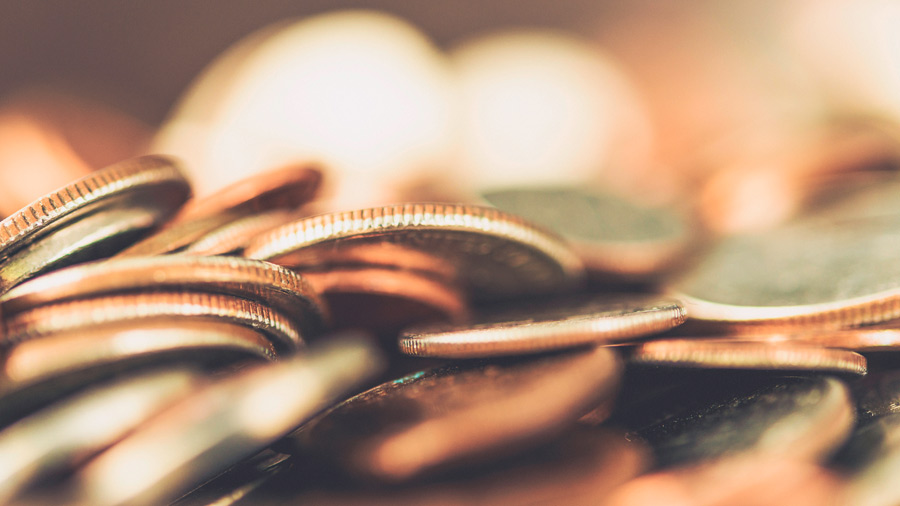Personal Wealth Management /
Dividends Are Nice, but They Aren't Safety Blankets, in Our View
We think high-dividend stocks’ reputation as a safe haven is a myth.
Editors’ Note: MarketMinder Europe doesn’t make individual security recommendations. Those mentioned below merely represent a broader theme we wish to highlight.
Global stocks enjoyed a nice rally last week, but it doesn’t appear to have much calmed investors’ nerves.[i] Headlines throughout financial publications we follow continue warning of worse to come, and we have observed a growing number of articles featuring investment tactics for uncertain times. One supposed tactic we have seen getting a lot of ink: dividends. This isn’t unusual. In our experience, interest in high dividends tends to spike whenever markets get rocky—largely because the dividend payments offer perceived stability. In our view, this is a short-sighted and flawed viewpoint. We like dividend stocks just fine, but we don’t think they are safe havens.
In our view, much of dividends’ allure during volatility stems from a fundamental misperception about what dividends are. You can hear it in sentiments like, stocks may be down, but at least these dividends get me a nice yield. Problem is, this statement presumes dividends are a return on your investment, which isn’t true, as we will discuss. Dividends are a return of capital. Unless you reinvest them, they don’t add to returns.
Yes, dividends are some companies’ way of returning earnings to shareholders. But companies pay those dividends in lieu of reinvesting earnings back into their core business to fund long-term growth. Every dividend payment peels off a small slice of the company’s value (this is simple math—when a company pays out a given amount of money, then it has that much less on hand, reducing the total value). Therefore, the company’s market capitalisation (the measure of a firm’s size calculated by multiplying its share price by the number of shares outstanding)—and stock price—drop by the amount of every dividend paid out. Or, more simply, companies pay dividends out of their stock prices. If you own a stock that pays a dividend, the company is returning some of your principal back to you.
This can seem like an abstract concept, so let us show a real-world example. American casino operator Wynn Resorts paid large one-off dividends in November 2010 and November 2012.[ii] As Exhibit 1 shows, until the first of those dividends was paid, Wynn’s price and total returns (that is, price plus reinvested dividends) were identical. But then came the ex. dividend date, which is the formal name for the date you must have owned a stock in order to receive the dividend. It is called the “ex. dividend” date because the stock price becomes exclusive of the dividend—or, in simpler terms, the dividend is subtracted from the stock price. Once Wynn’s stock went ex. dividend in November 2010, its price return diverged from its total return by roughly the amount of the dividend paid. That gap widened further upon the ex. dividend date for the November 2012 payment.
Exhibit 1: Wynn Resorts’ Stock Price and Special Dividends

Source: FactSet and Wynn Resorts, as of 22/3/2022. Wynn Resorts price and total returns, 31/12/2009 – 31/12/2014. Presented in US dollars. Currency fluctuations between the dollar and pound may result in higher or lower investment returns.
This is why it is a mistake to liken stocks’ dividend yields to bonds’ interest payments, in our view. If you own a bond, the interest paid is a return on your investment. With typical sovereign and corporate bonds, you receive the interest payments over the bond’s lifespan and, presuming the issuer doesn’t default (meaning, doesn’t fail to fulfill the bond’s obligations), you get your entire principal back when the bond matures. By contrast, dividends generate compound growth only if you reinvest them, which we think cuts against the emotional appeal of owning them during market downturns. Then too, in our experience, companies often cut dividends when times get lean, zapping all trace of the alleged safety blanket. For instance, in 2020, two of the UK’s largest oil companies—British Petroleum and Royal Dutch Shell—cut their dividends significantly after struggling during COVID lockdowns.[iii]
Our research shows high-dividend stocks aren’t immune to bear markets, either. In 2020’s lockdown-induced bear market, the MSCI World High Dividend Yield Index fell -22.9%, which was only moderately less than the MSCI World Index’s -26.1% drop.[iv] In the bear market that accompanied 2007 – 2009’s global financial crisis, the MSCI World High Dividend Yield Index’s -46.4% drop was even worse than the MSCI World Index’s -38.3% fall.[v] Dividends didn’t offer protection on either occasion.
Again, we like dividends. We just think it isn’t inherently beneficial to target them, either for cash flow or for a performance boost when times get tough. Stocks are stocks, and our research shows performance depends on a host of variables—not least sector and country, along with a litany of company-specific attributes—not whether a company pays out some of its value now and then.
[i] Source: FactSet, as of 22/3/2022. Statement based on MSCI World Index return in GBP with net dividends, 14/3/2022 – 18/3/2022.
[ii] Source: Wynn Resorts, as of 22/3/2022.
[iii] “BP Halves Dividend After Suffering Huge Losses,” Staff, BBC News, 4/8/2020.
[iv] Source: FactSet, as of 22/3/2022. MSCI World High Dividend Yield Index and MSCI World Index returns in GBP with net dividends, 20/2/2020 – 16/3/2020.
[v] Ibid. MSCI World High Dividend Yield Index and MSCI World Index returns in GBP with net dividends, 12/10/2007 – 6/3/2009.
Get a weekly roundup of our market insights.
Sign up for our weekly e-mail newsletter.

See Our Investment Guides
The world of investing can seem like a giant maze. Fisher Investments UK has developed several informational and educational guides tackling a variety of investing topics.




